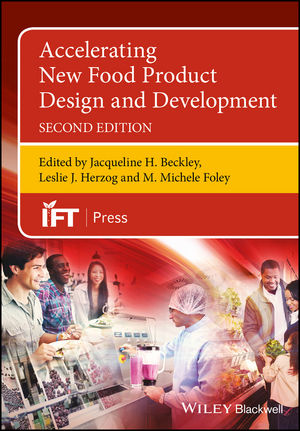The case for fortified corn masa

As a busy mom, I rely on nutrient-dense, enriched grain products to ensure my children receive all the nutrients they need. From my son’s morning ritual of mixing all of his favorite cereals together in one bowl, to the supply of baguettes in the freezer that regularly make an appearance at dinner, I rely on these products to help ensure my children receive the B vitamins, fiber, iron and other nutrients they need to grow and develop.
It’s easy to take for granted the benefits of enriched grain products, which are a quick and easy staple in my home. However, when serving up a sandwich or snacking on a slice of toast, I don’t always stop to think about how much these products have improved the health of my children, as well as myself, both now and during pregnancy.
Over the last 20 years, since the government first mandated folic acid fortification of these grain staples, there has been a tremendous impact on public health. The fortification of products has led to a significant decrease in neural tube defects (NTDs). While our family has benefited from the fortification of these products, it’s startling to realize that Hispanic populations remain disproportionately affected by spina bifida and other devastating NTDs, largely due to the fact that corn masa products remained unfortified for years.
In April, FDA approved folic acid fortification of corn masa flour, allowing manufacturers to add up to 0.7 mg of folic acid per pound of corn masa flour, similar to the levels of breads, cereals, pastas and other enriched grain products that you might find in the pantry.
The first fortified corn masa products are beginning to hit store shelves, and while the fortification of corn masa products is still voluntary for producers, I hope to see more companies making a concerted effort to add folic acid to their products. As companies begin to fortify their products, it is important to remember the huge impact that this will have on consumers, particularly Hispanic women and families, as well as the opportunity our industry has to impact public health.
Each year, approximately 3,000 pregnancies are affected by NTDs in the United States. While there are simple preventative steps women can take, Americans are generally unaware of the impact that diet—specifically enriched grains—has on pregnancy and infant health.
Folic acid, an important B vitamin, is often a shortfall nutrient for women. Folic acid deficiency in pregnant women and women of childbearing age has been linked to devastating NTDs, such as spina bifida, in children. However, since FDA mandated that enriched grains be fortified, that rate of NTDs has dropped by approximately 35 percent. Fortification is an essential part of prevention. In fact, the Spina Bifida Association estimates that consuming enough folic acid during pregnancy can reduce the risk of NTDs by as much as 70 percent.
Enriched grains, such as white bread, are the No. 1 source of folic acid in the diets of most Americans, and can contain two times as much folic acid as their whole-grain counterparts.
Since the mainstream fortification of grain products, the Centers for Disease Control (CDC) estimates that each year 1,300 fewer babies are born with NTDs, making it one of the biggest advancements in public health in the 20th century. This is a statistic we should all wear as a badge of honor.
However, there is still work to be done. Hispanic mothers remain at 20 percent higher risk for NTDs. Many experts have correlated this to the role of tortillas and other products based on corn masa flour, which until now have not been allowed to be fortified, as dietary staples in Hispanic households. With FDA allowing voluntary fortification of corn masa flour, we as an industry are again poised to make a difference in the lives of our customers and to help prevent birth defects. March of Dimes anticipates enriched corn masa products could prevent dozens of NTDs each year.
As manufacturers consider the change, I hope you’ll reflect on the incredible advancements that enriched, fortified grains have made in public health. Voluntary enrichment will help demonstrate the commitment of businesses to champion healthy babies and showcase the role these products play in preventing thousands of babies from being born with devastating birth defects each year.
For more information and resources on enriched, fortified grains, I welcome you to visit GrainFoodsFoundation.org.
Looking for a reprint of this article?
From high-res PDFs to custom plaques, order your copy today!







